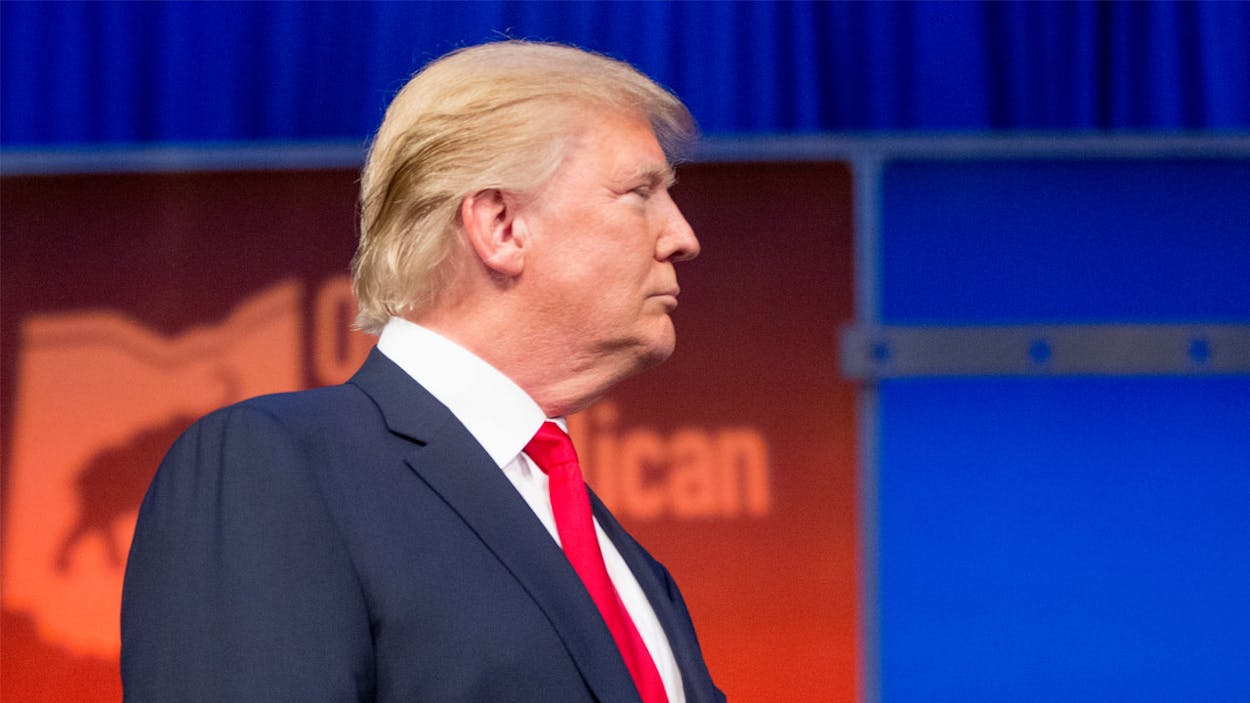On Wednesday, Pope Francis held a mass in Ciudad Juárez, just across the Rio Grande from El Paso, where his calls for compassion for immigrants, including those who have lost their lives trying cross the United States’ southern border were greeted warmly. And later that day, en route back to the Vatican, the Pope made his point more explicitly. Here’s Jim Yardley, at the New York Times, reporting from “aboard the papal airliner”:
Inserting himself into the Republican presidential race, Pope Francis on Wednesday suggested that Donald J. Trump “is not Christian” because of the harshness of his campaign promises to deport more immigrants and force Mexico to pay for a wall along the border.
“A person who thinks only about building walls, wherever they may be, and not building bridges, is not Christian,” Francis said when a reporter asked him about Mr. Trump on the papal airliner as he returned to Rome after his six-day visit to Mexico.
Trump, needless to say, offered an angry rejoinder. If pressed to arbitrate this dispute, I would probably side with Pope Francis; although I’m admittedly a Methodist, I consider him a more credible authority on Christianity than Trump. But that’s just my opinion, and who am I to judge? So instead, I’ll just offer two observations.
First, I continue to consider Trump a grotesque and repulsive figure whose notable contributions to our country include coarsening our political discourse, beclowning our once-great nation in the eyes of the world, and gulling millions of dispossessed Americans into pinning their hopes on a carnie. But I will give him credit for one thing: as a result of the tumult he has wreaked on the 2016 election cycle, no one is asking me to weigh in on or even contemplate “the Hispanic vote”—a line of analysis that is so shallow and reductive that I consider it distasteful. I’m much less squeamish, however, about discussions of voting blocs delineated by the self-described beliefs of the voters in question. The Catholic vote? That’s an interesting subject, especially in Texas, and one that we’ll no doubt return to at points this year. I’ll leave it at that for now.
The second observation is that, in light of the Pope’s visit, here’s something all Texas pundits and politicians would do well to remember: Per the 2008 American Religious Identification Survey, Texas’s population is slightly less Protestant than the nation as a whole and significantly more Catholic. The change is largely the result of the growth in the state’s Hispanic population, and so the Catholic influence in Texas—like the Hispanic influence, for readers who prefer to think of politics in terms of ethnicity—is as yet constrained by the relative youth of this subset of the population, among other factors. But it’s nonetheless worth keeping in mind: the inroads evangelicals are currently fighting for, on issues like religious liberty, apply to believers of all faiths.







